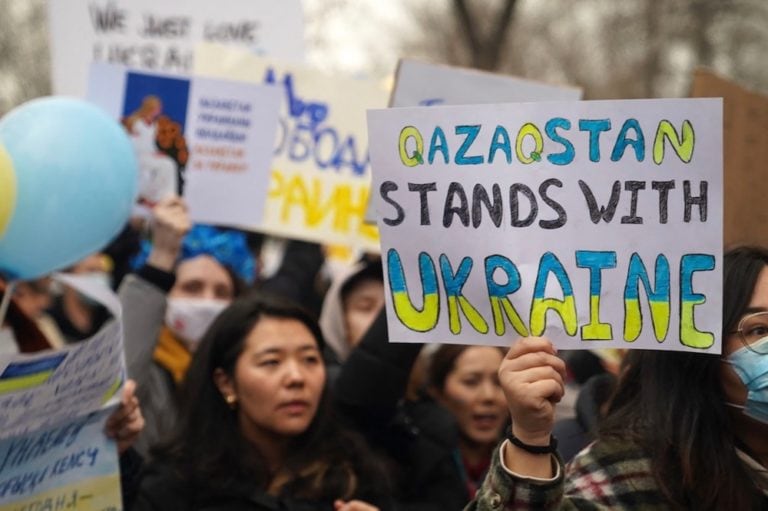The charges against Umida Akhmedova stem from photographs depicting life in Uzbek villages and a documentary on the traditional ban on premarital sex.
(CPJ/IFEX) – New York, January 22, 2010 – The Committee to Protect Journalists today called on Uzbek authorities to immediately drop all charges against Umida Akhmedova, a prominent photojournalist and documentary filmmaker who covers gender, ethnic, and cultural issues, and allow her to continue to do her work without fear of reprisal.
On January 13, investigators with the city police department in the Uzbek capital, Tashkent, criminally charged Akhmedova with insulting and libeling the Uzbek people and its traditions through her work, according to international news reports. On Thursday, investigators informed Akhmedova’s lawyer that they had concluded their probe and the case will be transferred to court in the next few days, Akhmedova told CPJ. If convicted on both charges, she could serve up to eight years in jail. Akhmedova is prohibited from leaving the country, she told CPJ.
According to the independent regional news Web site Ferghana, the charges stem from a 2007 album of photographs depicting life in Uzbek villages and a 2008 documentary on the traditional ban on premarital sex. Both were produced with support by the Swiss Embassy in Tashkent, Akhmedova told CPJ. In the album, titled “Women and Men: From Dawn to Dusk,” Akhmedova showed men, women, and children in their daily routine and during traditional rituals. Her documentary – The Burden of Virginity – criticizes the pressure on young women in Uzbekistan to practice abstinence until marriage.
“We call on the authorities in Tashkent to drop the absurd charges against Umida Akhmedova at once,” said CPJ Europe and Central Asia Program Coordinator Nina Ognianova. “It is unthinkable that a documentarian should go to prison because the state interprets her work as insulting.”
The indictment, obtained by CPJ, and signed by Tashkent police investigator K. Kh. Akbarov, said that results of a “complex expert review” of Akhmedova’s work revealed that “with her unscientific, unsound, and inappropriate comments, which contain hidden implications, are directed at discrediting values and traditions of our people, and hold negative information that can affect moral and psychological conditions of the youth,” she insulted “the traditions of the Uzbek people, which is viewed as defamation, scornful, and disrespectful attitude towards national traditions.”
According to Ferghana, in mid-November, Akhmedova learned that a criminal case concerning her work was filed by Uzbekistan’s State Agency for Press and Information, a government media regulator. Investigator Nodir Akhmadzhanov with the Mirabad District Police Department in Tashkent called and asked her to come and testify as a witness in the case. After the visit, Akhmedova told Ferghana she was perplexed at the authorities’ claims. She said Akhmadzhanov was unable to answer her question about how the visual depiction of traditions could defame an entire nation. A month later, the same investigator told Akhmedova that, as an author of the documentary and album, she was no longer a witness in the criminal case but had been upgraded to a suspect; he suggested that she seek a lawyer, Ferghana reported.
In their conclusion, the state-sponsored panel of experts who reviewed Akhmedova’s work said it left a negative impression on viewers unfamiliar with Uzbek traditions, Ferghana reported: “Looking at the pictures, a foreigner who had not seen Uzbekistan comes to the conclusion that this is a country where people live in the Middle Ages. The author intentionally focuses on life’s hardships.”
Akhmedova deems the charges against her unsubstantiated but told CPJ she feared for her subjects. “I am not scared of being prosecuted but hope they will spare the people I have documented and worked with,” Akhmedova told CPJ.
Akhmedova is the author of several documentaries on Uzbekistan; her photos have been shown in exhibitions at home and abroad. She is the first female documentary filmmaker in Uzbekistan, the regional press reported.
Click here to see a slide show of Akhmedova’s work on the CPJ Blog


